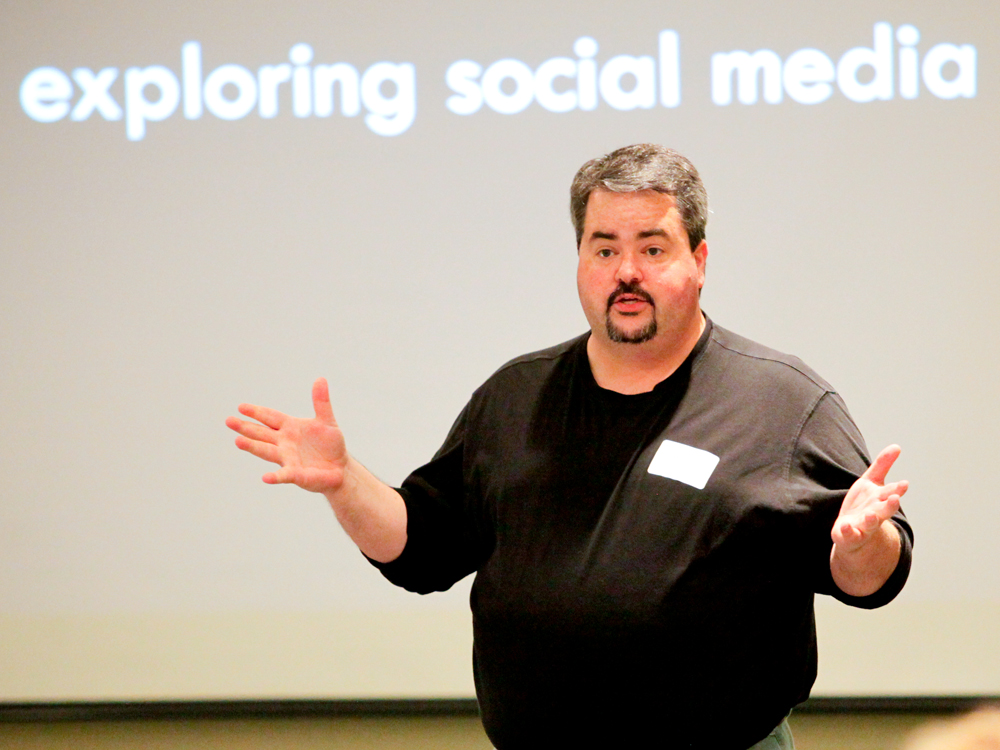How Not To Go Insane While Delivering B2B Keynote Speeches

It is said that the American’s worst fear, topping even death itself, is public speaking. This fear is rather complex, because the main thing here is the fear of embarrassment. It can get worse when it concerns business to business transactions. Imagine: you are at a business meeting. Your company has selected you, the unlucky person, to give an account of a proposal for a very important merger. Before this, the CEO himself pulls you aside and says that you can’t possibly screw this up. When you go beside the screen where the images are projected, you feel an icy claw in your stomach. Your palms sweat. You start noticing individual details about yourself: “Why am I wearing this tie? It looks horrible on me. Come on, calm down. You can do this. Just imagine all of them in their underwear.” The mental images of the elderly attendants sear your mind. You let out a small chuckle. Your boss raises an eyebrow at you, and you crack, laughing mad.

Okay so it may not be completely accurate. One is much more likely to soil their underwear in that situation – and yes, there are records of that happening. However, it must be known that speaking in public is not an art form, it is a skill. One may or may not be born with the ability to speak flawlessly in public, but if not, it can be trained. Like cutlery, some knives are purchased sharp and some are purchased dull. The sharp ones may be used right away, but the dull knives need to be sharpened to the right degree to be of use.
Keynote speakers earn a lot because they have an important job. Keynote speakers are selected for their apparent talent; theirs is an enviable task because they are the ones that other companies get to know – to other companies, they become the face of the company. They summarize the meeting, end it favorably, or depending on how bad the meeting went, mitigate the damage with their force of personality and persuasiveness. Now you could say that you don’t have that, but it really can be learned.
One way to becoming an effective keynote speaker is social media training. Social media training covers a wide variety of topics, not least of which is the ability to make a public speech. It covers advertising towards consumers through mass marketing strategies; advertising towards other businesses (most importantly keynote speaker training); training in explaining to the government certain things to get projects and plans through. It also involves damage prevention and mitigation – if the business gets bad publicity due to a scandal, the consumers – the general public and other businesses alike – may stop purchasing, and in some cases the government may order the shutdown of the business. This indeed covers internet-based marketing, which targets multiple demographics because of the way the internet works. Posting on social media websites where anyone can see prevents the limitation of targeting specific demographics. A public post is a public post, after all.
Another method is to attend speech tutorial classes. There are plenty on the internet that one can look from. This caters more to the ability to speak properly in public, and lacks the focus in marketing and business transaction and lubrication that one would get in social media training, but if one is completely paralyzed by fear when one is speaking in public, it would be a good idea to go to speech tutorial classes as well. However, speech tutorial classes know how badly they are needed and as such may charge hundreds of dollars for a single course that may not even help if one is not truly receptive and willing to go through it. If one is willing, however, these classes will be of great help, not just in social media marketing but in real life as well.
Overall, it is more recommended to take a social media training course, unless one truly lacks the ability to speak in public. Shyness can be remedied, but knowledge of how the system works – its ins and outs, its nuances and points that an ordinary person would not understand – is necessary to becoming a keynote speaker.
Marcus Hois a highly sought-after Social Media Strategist who specializes in revenue-driven campaigns on social media for businesses. Well known for his cutting-edge, fresh insights and proven strategies, Marcus has successfully helped over 200 corporations and SMEs to rake in hundreds of thousands within very short periods of time.
Some of his clients include:
Qatar Airways, 3M, PernodRicard, DassaultSystèmes, FreshKon, Home-Fix, Scanteak and Singapore Management University. Most recently, his campaigns have also won internationally acclaimed awards such as Smitty’sTravel+Leisure.
